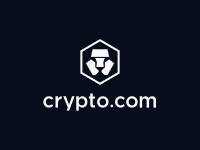What are Prediction Markets – Future Trade Guide

What are Prediction Markets—and How Do They Compare to Sports Betting?
Prediction markets are platforms where you can buy and sell contracts that resolve based on the outcome of future events. Think of them as “betting meets Wall Street”—you trade Yes/No or proportional outcome contracts. Each contract is valued between $0 and $1, reflecting the market’s collective belief in its likelihood to happen. For example, if you see a “Yes” contract priced at $0.63, that implies a 63% odds—just like an implied betting line. You can sell your position before an outcome, hold it to maturity, or even go the other way to hedge your own bets. This dynamic pricing offers an edge over traditional odds-based markets.
Prediction markets shine in their transparency, real-time pricing, and ability to respond faster than traditional sports betting lines—or even polls. They’re gaining serious traction in the U.S., especially as sports fans seek new ways to stay engaged beyond point spreads and parlays. On TrustnBet we will provide detailed reviews for Platforms available in the US.
Click the link if you are curious for Sportsbook reviews or Legal Sweepstakes and Fantasy Sports.
Prediction Markets Reviews
soon to come you will find detailed reviews about Kalshi and some other Platforms

What Are Prediction Markets?
Unlike sportsbooks, prediction markets like Kalshi operate as financial exchanges. You trade contracts based on future events—sports results, elections, weather, or even pop culture outcomes. Each contract either pays out $1 at resolution if you’re right, or $0 if you’re wrong. Markets reflect trader sentiment and shift in real-time.
Kalshi, for example, offers a variety of event contracts—from political outcomes to whether AI regulation becomes federal law by year-end, or Sports.
Kalshi: A Federally Regulated Pioneer
Kalshi is a U.S.-based Designated Contract Market (DCM) regulated by the Commodity Futures Trading Commission (CFTC). That means it’s overseen like a financial exchange—not like a casino. It offers “event contracts,” representing legally permissible financial instruments as opposed to state-licensed bets. Therefore Kalshi is legal in all 50 US States at the moment of writing!
Important legal wins have solidified Kalshi’s position. The CFTC dropped its appeal in early 2025, allowing Kalshi to list political and sports outcomes nationwide. Plus, a federal court granted an injunction blocking New Jersey from shutting them down.
What You Can Trade on Kalshi:
- Political events (elections, congressional control, etc.)
- Sports outcomes (e.g., “Will Team A win the Super Bowl?”)
- Cultural predictions (movie awards, chart rankings)
- Economic/weather events (interest rates, weather extremes)
Polymarket & Other Prediction Market Platforms
Polymarket offers similar event-based trading, though primarily via crypto and structured offshore. It survived a $1.4M fine in 2022 for regulatory issues and continues operating. Their markets include everything from politics to unexpected pop culture happenings.
Then there’s Manifold, a reputation-based, play-money platform focused on collaborative forecasting. It used to have real-money “sweepcash,” but removed it in early 2025.
The Iowa Electronic Markets (IEM), run by University of Iowa, are among the original academic prediction systems. Though not regulated by the CFTC, they helped inspire today’s models.
Are Prediction Markets Legal in the United States?
Yes—with caveats.
Kalshi stands out as federally regulated via the CFTC, which currently supersedes conflicting state laws. Courts have upheld that event contracts aren’t “gaming” or unlawful under the Commodity Exchange Act.
That said, challenges persist as some states issue cease-and-desist orders over sports contracts. But current federal rulings reinforce Kalshi’s legitimacy.
Polymarket operates offshore, shifting regulatory scrutiny away from U.S. jurisdiction. IEM, as a tiny academic project, avoids major regulation due to its low stakes.
What Makes Prediction Markets So Fascinating?
- Real-Time Crowd Forecasting: Markets reflect collective sentiment more dynamically than polls or pundits.
- Scalable & Universal: Kelshi-style platforms can offer markets across all 50 states if regulated federally—a major advantage over state-by-state sportsbooks.
- Wide Range of Topics: From Super Bowl outcomes to Oscar winners—or even porn star named BBC’s best rated film.
- Hybrid Appeal: Blends betting excitement with financial logic—making it attractive to both gamblers and investors.
- Regulatory Innovation: Kalshi’s model could disrupt how betting and forecasting move forward in the U.S.
Prediction Markets – the Alternative to Sportsbook?
Prediction markets are carving out a unique space between sports betting and financial trading. Platforms like Kalshi offer a federally regulated, transparent way to wager on real-world events across politics, sports, economics, and more. Polymarket and IEM showcase the breadth of models—from crypto-based betting to academic experiments.
As regulation evolves and platforms prove their value, prediction markets may redefine how Americans forecast, hedge, and, yes, place their bets. Just remember: treat them as you would any speculative investment—stay informed, manage risks, and enjoy the ride.
FAQs Prediction Markets
They’re legal financial contracts (if federally regulated, like Kalshi), not gaming.
Yes—as long as the platform has CFTC approval and can argue federal preemption.
You’re trading a probability, not betting against a sportsbook. That difference matters legally.
A contract priced at 0.45 tells you the market thinks the event has a 45% chance of happening.
Buy low/sell high, or hold to payout if you foresee the outcome.
Sure—market volatility, legal uncertainties, and liquidity issues can impact outcomes.
Kalshi is regulated by the CFTC; IEM is academic; Polymarket is offshore.


